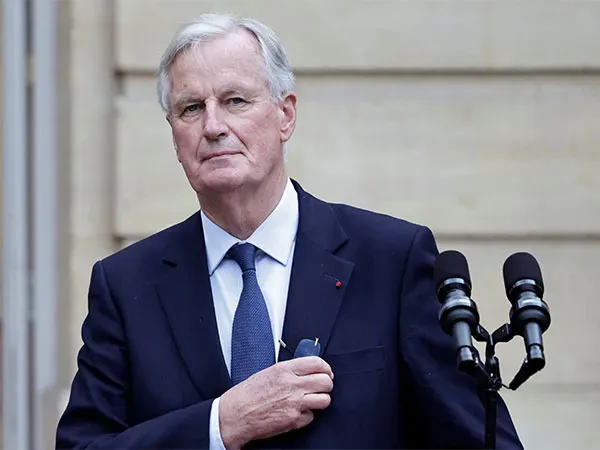No-Confidence Vote Leads to Ouster of French PM Barnier

Paris, Dec 5 (NationPress) - On Wednesday evening, the members of the French National Assembly cast their votes in favor of a no-confidence motion, resulting in the resignation of French Prime Minister Michel Barnier and the dissolution of his government.
A total of 331 deputies, primarily from the left-wing coalition New Popular Front (NFP) and the far-right National Rally (RN), supported the motion, exceeding the required 289 votes for its passage, as reported by Xinhua news agency.
Following the provisions of the French Constitution, Barnier is now obligated to submit his resignation to French President Emmanuel Macron, which will be automatically accepted.
Before the vote, Barnier addressed the French lawmakers, defending his decision to push for the approval of the 2025 social security budget.
"I made this decision after having demonstrated the spirit of listening, respect, and dialogue, which enabled the government to refine its proposal daily on several critical issues," he stated.
Highlighting France's substantial deficit, Barnier remarked, "This reality persists; it won't vanish due to a no-confidence vote."
"This truth will serve as a reminder to any government, regardless of its nature," he added.
In reaction to the no-confidence vote's outcome, former leader of the far-right party Marine Le Pen stated that she did not view the vote as a "victory."
"Our choice was to protect the French people," Le Pen told French television TF1, asserting that there was "no alternative to this decision."
On June 9, 2024, Macron declared the dissolution of the National Assembly following his party's defeat in the 2024 European Parliament elections.
He appointed Barnier as Prime Minister, a decision that faced criticism from left-wing parties, who anticipated a candidate from NFP in accordance with the legislative election results.
With Barnier's government now disbanded, France must once again confront the task of securing an approved budget for 2025 in less than a month.
According to BFMTV, the French President is expected to appoint a new Prime Minister "within the next 24 hours," as he aims to avoid appearing before the world without a government during the inauguration of the restored Notre Dame de Paris cathedral.
Since Macron has already dissolved the lower house in June, he cannot utilize the same strategy until June 2025. The French National Assembly currently lacks an absolute majority.
France is navigating a critical phase. The Organisation for Economic Cooperation and Development (OECD) has forecasted that the nation’s economic growth will decelerate from 1.1 percent in 2024 to 0.9 percent in 2025.
In its recent economic outlook, the OECD cautioned that failure to adopt the budget for 2025 could lead to political instability, hindering recovery.
"Moreover, lower-than-expected inflation and economic growth might diminish tax revenues, jeopardizing the government's capacity to achieve its 5 percent deficit target," it noted.
According to OECD projections, France's fiscal deficit is expected to escalate to 6.1 percent of GDP in 2024, up from 5.5 percent in 2023.
Barnier has become the first French Prime Minister to be compelled to resign via a no-confidence vote since 1962.
Returning from an official trip to Saudi Arabia, Macron is anticipated to address the nation on Thursday evening.









